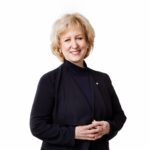The session highlighted the importance and the practical implications of creating the conditions within society which enables people to be active citizens and play a full part in its development. This event was inspired by the idea that, if people are able to engage more fully in meeting the challenges that they and their society and country face, they are able to contribute to building a society which meets their needs and those of the wider community. And, if people are denied those opportunities or are unable to take hold of them, not only will the development of the society and the state stall and individuals will suffer, but history shows that it often leads to tension and unrest.
The session was moderated by Ms. Sarah Cook, from the United Nations Research Institute for Social Development and made an important contribution to the theme of the current policy cycle of the Commission for Social Development – “Promoting empowerment of people in achieving poverty eradication, social integration and full employment and decent work for all”. Two speakers addressed the current challenges from the UN system perspective: Ms. Daniela Bas, Director of the Division of Social Development, UNDESA spoke about the “Current challenges and the UN” and Ms. Amina J. Mohammed, Special Advisor to the UN Secretary General on post MDG planning addressed the issue of “An empowered society in the post-2015 scenario”.
Rt. Hon. Kim Campbell, former Prime Minister of Canada and Member of the Club de Madrid addressed the issue “Global Shared Societies Agenda: a model framework for promoting long-term inclusive and sustainable growth through economic empowerment”. In her intervention Ms. Campbell argued that social inclusion is fundamental to empowerment and social development and identified key enabling conditions which facilitate the achievement of societal goals. She also recalled how the Club de Madrid Shared Societies Project and its 10 commitments and approaches for implementation demonstrate that the goals of social, political and economic progress are interdependent and mutually reinforcing.
H.E Ebrahim Rasool, Ambassador of South Africa to the United States of America spoke about the “Empowerment in the transition from authoritarian to democratic systems” bringing into the discussion the example of South Africa; and Mr. Ibrahim Mothana writer, activist and social entrepreneur from Yemen dealt with the different challenges in the Arab World from a youth perspective, and how young activists have become resourceful after being a marginalized majority.
This side-event reminded how the issues of empowerment and shared societies are particularly critical at this time as there is renewed discussion on the drivers of social and economic development in the framework of the Post-2015 Development Agenda. As the global community is focused on establishing a new set of goals to follow the Millennium Development Goals, there will be increased interest in identifying critical factors in achieving development, and how those factors can be expressed in the new set of targets.

